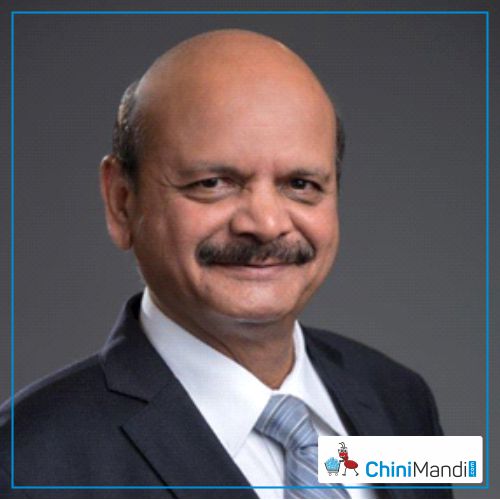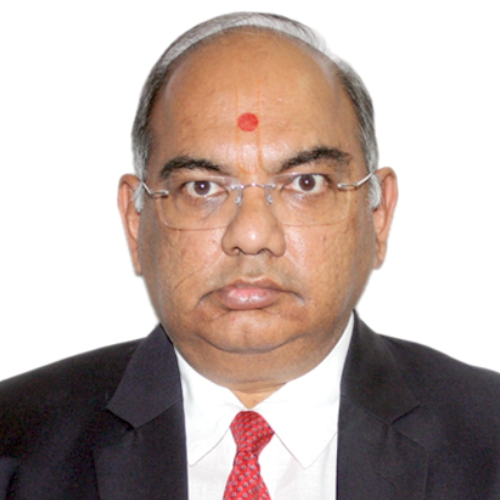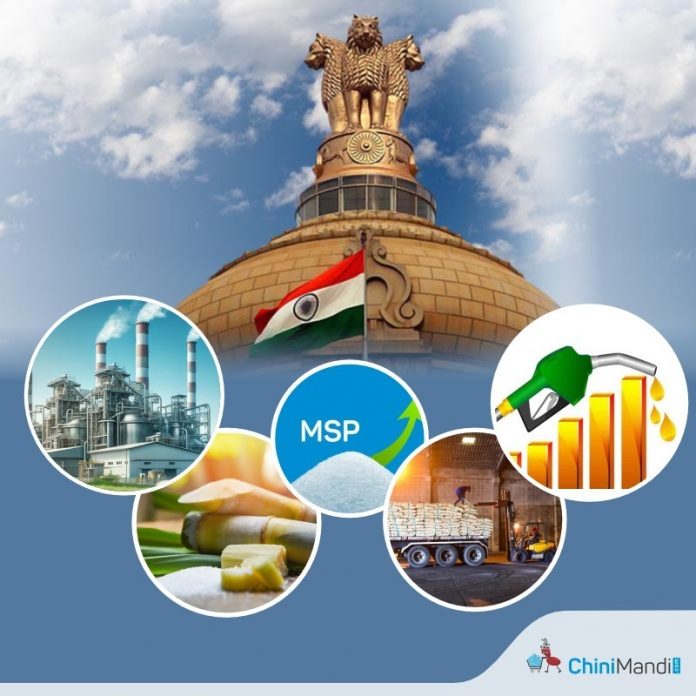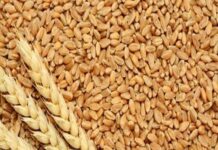The sugar industry is pinning hopes on the new Government. They hope that the Government will revise the Minimum Selling Price (MSP) for sugar. The industry believes that, while the Government has established appropriate policy measures, the implementation of these policies has been inadequate. Additionally, the industry is advocating for a stable long-term policy on ethanol blending to support and encourage ethanol producers. They emphasise the need for a resilient policy framework that remains steadfast even in the face of challenges. ChiniMandi spoke to several sugar industry leaders and champions to gather their expectations from the new Government.
Clarion call for sugar MSP increase
 Deepak Ballani, DG, ISMA on behalf of the Indian Sugar & Bio-energy Manufacturers Association (ISMA), urged the new Government to prioritise some of the long-standing demands of the industry. “It is imperative that the Government revises the Minimum Selling Price (MSP) for sugar upwards and aligns it with the Fair and Remunerative Price (FRP) of sugarcane”, he stated.
Deepak Ballani, DG, ISMA on behalf of the Indian Sugar & Bio-energy Manufacturers Association (ISMA), urged the new Government to prioritise some of the long-standing demands of the industry. “It is imperative that the Government revises the Minimum Selling Price (MSP) for sugar upwards and aligns it with the Fair and Remunerative Price (FRP) of sugarcane”, he stated.
 Prakash Naiknavare, MD, National Federation of Cooperative Sugar Factories (NFCSF), said that the new Government should seriously consider raising sugar MSP. The sugarcane price has been revised four times during the last four years but the sugar MSP has remained stagnant at Rs. 31 per kg creating tremendous financial stress, especially on the Cooperative sugar mills because the Cooperative banks when they provide pledge loan, they take the benchmark of Sugar MSP and not the prevalent sugar prices. This anomaly results in lesser availability of loans to the cooperative sugar mills.
Prakash Naiknavare, MD, National Federation of Cooperative Sugar Factories (NFCSF), said that the new Government should seriously consider raising sugar MSP. The sugarcane price has been revised four times during the last four years but the sugar MSP has remained stagnant at Rs. 31 per kg creating tremendous financial stress, especially on the Cooperative sugar mills because the Cooperative banks when they provide pledge loan, they take the benchmark of Sugar MSP and not the prevalent sugar prices. This anomaly results in lesser availability of loans to the cooperative sugar mills.
Another important and relevant angle to the subject is that Dr. C. Rangarajan’s Committee’s recommendations, which are accepted by the Central Government and left to the State Government for implementation envisages 70-75% of total revenue to be the cane price, while the balance 25-30% has to be retained by the sugar mills to meet their operational expenses/including overheads. Naiknavre said that if one does the reverse calculation of this formula, the sugar MSP based on current year’s FRP logically will not be less than Rs. 40/- kg.
 Sanjay Khatal, Managing Director, Maharashtra State Cooperative Sugar Factories Federation, Ltd, said that the Government should act on the existing policies that it has already introduced. Khatal said that there have been successive increases in the cane FRP, however the sugar MSP has remained unchanged since 2019. “When the sugar MSP was introduced by the Government, it was fixed after taking into account the Fair & Remunerative Price (FRP) of sugarcane. Hence, it is high time that an upward revision in sugar MSP is due. I hope the Government increases the MSP, which will enable sugar mills to make timely sugarcane price payment to the farmers,” he said.
Sanjay Khatal, Managing Director, Maharashtra State Cooperative Sugar Factories Federation, Ltd, said that the Government should act on the existing policies that it has already introduced. Khatal said that there have been successive increases in the cane FRP, however the sugar MSP has remained unchanged since 2019. “When the sugar MSP was introduced by the Government, it was fixed after taking into account the Fair & Remunerative Price (FRP) of sugarcane. Hence, it is high time that an upward revision in sugar MSP is due. I hope the Government increases the MSP, which will enable sugar mills to make timely sugarcane price payment to the farmers,” he said.
 A similar sentiment is echoed by industry veteran Bharat Bhushan Mehta, Whole Time Director and CEO, Dalmia Bharat Sugar and Industries Limited, noting the need for an upward revision in sugar MSP due to increases in sugarcane FRP and other input costs over the years, including for SY24-25.
A similar sentiment is echoed by industry veteran Bharat Bhushan Mehta, Whole Time Director and CEO, Dalmia Bharat Sugar and Industries Limited, noting the need for an upward revision in sugar MSP due to increases in sugarcane FRP and other input costs over the years, including for SY24-25.
 Sarita Reddy, Managing Director, Gayatri Sugar, also said that an upward revision of MSP which is long overdue.
Sarita Reddy, Managing Director, Gayatri Sugar, also said that an upward revision of MSP which is long overdue.
 Kiran Wadhwana, Owner, COMDEX India Ltd. and an important voice in the international sugar trade said a lot will depend on who will helm the Ministry of Food and Public Distribution post the new Government formation. “A lot will depend on the thought process and ideas he/she brings to the table. Upward revision in sugar MSP is long due, and we would want the new Government to prioritise that. ISMA has been requesting the Government to allow sugar exports considering higher closing stocks in the current season and expectations of a good Monsoon”, he opined.
Kiran Wadhwana, Owner, COMDEX India Ltd. and an important voice in the international sugar trade said a lot will depend on who will helm the Ministry of Food and Public Distribution post the new Government formation. “A lot will depend on the thought process and ideas he/she brings to the table. Upward revision in sugar MSP is long due, and we would want the new Government to prioritise that. ISMA has been requesting the Government to allow sugar exports considering higher closing stocks in the current season and expectations of a good Monsoon”, he opined.
 Rahil Shaikh, Managing Director of MEIR Commodities, added that the sugar industry faces significant issues, primarily regarding the sugar MSP. “The first and foremost issue is regarding sugar MSP. If you see there has been a steady increase in cane FRP without any corresponding increase in sugar MSP or ethanol prices, which has led to losses for the industry. The Government should immediately revise these two prices and mitigate the losses of the sugar mills,” he said.
Rahil Shaikh, Managing Director of MEIR Commodities, added that the sugar industry faces significant issues, primarily regarding the sugar MSP. “The first and foremost issue is regarding sugar MSP. If you see there has been a steady increase in cane FRP without any corresponding increase in sugar MSP or ethanol prices, which has led to losses for the industry. The Government should immediately revise these two prices and mitigate the losses of the sugar mills,” he said.
Safeguarding ethanol interest
Ballani pointed out that at the beginning of the ongoing Ethanol Supply Year (ESY), there was no revision of ethanol procurement prices, and these prices have remained static despite an increase in the cost of production.
“We request the Government to revise the ethanol procurement prices for various feedstocks used in ethanol production, reflecting the FRP of sugarcane. The continuation of the Ethanol Blending Program (EBP) would greatly benefit from lifting the restrictions over ethanol production from juice and B heavy molasses, thereby enhancing the production capacity and contributing to the overall goals of the program,” he said.
To sustain the Ethanol Blending Program (EBP) and support the financial liquidity of sugar mills and to ensure prompt payments to farmers, Ballani advocated for the implementation of the National Mission on Sugarcane (NMS) to ensure stability in sugarcane production and facilitate informed decision-making by the Government.
Naiknavre said that as per the understanding, the Union Ministries are preparing a proposed action plan to be achieved by them during the first 100 days of the New Govt. The industry association representing Cooperative Sugar sector expect the new Government to declare long-term Ethanol Blending Programme (EBP) for which Oil Marketing Companies (OMC) should confirm long term off-take commitments which would give confidence not only to the current ethanol manufacturers but also to the prospective investors who envisages to invest in creating distillation capacity pan India.
Another point of concern is that despite the new Ethanol Supply Year having crossed half way, the revised prices of Ethanol produced from Sugarcane juice, Sugar Syrup and “B” Heavy Molasses are still not announced. This sort of ambiguity creates uncertainty in the minds of all the stakeholders connected with the success of National Bio-Fuel Policy.
Khatal said that the Government should announce the new ethanol prices for the next supply season much in advance by September. “This will help sugar mills to strategise their product mix- as to how much sugar and ethanol from C Heavy, B Heavy and Sugarcane Juice to be produced. In the current season, sugar mills had produced ethanol from B Heavy molasses, but were unutilised after the Government restricted ethanol production from B Heavy molasses. Though the Government has recently allowed its utilisation, there was a lot of uncertainty regarding the same. This should not be repeated next year. I feel that the Government should allow sugar mills to produce ethanol from B Heavy molasses and not restrict it at all. B Heavy molasses are a rich source of ethanol, and the sugar loss is also minimal” he stated.
 Narendra Mohan, Former Director of NSI-Kanpur, emphasised the need to develop alternative feedstocks for ethanol production, such as sweet sorghum, which has potential. “I feel the Government should consider developing an ecosystem for that with a pricing policy on raw material and ethanol made out of it similar to what exists for sugarcane and other feed stocks used for ethanol production. This will promote clean, green & renewable energy,” he said.
Narendra Mohan, Former Director of NSI-Kanpur, emphasised the need to develop alternative feedstocks for ethanol production, such as sweet sorghum, which has potential. “I feel the Government should consider developing an ecosystem for that with a pricing policy on raw material and ethanol made out of it similar to what exists for sugarcane and other feed stocks used for ethanol production. This will promote clean, green & renewable energy,” he said.
Mohan said that the Government should announce a floor/normative price for bagasse-based co-generation, which is a green fuel. “This will incentivise the sugar mills to produce bagasse-based cogeneration. This is very much required at this point as air pollution is a big challenge in most of our cities. We still have more than 60% thermal-based power supplies in the country”, he added.
The former Director of NSI-Kanpur also stressed that there is a need to constitute a task force, which may suggest diversification and value addition beyond power, ethanol and CBG. The mandate of the task force may be to study, analyse and recommend how by-products & waste from the sugar industry can be utilised for producing other value-added products, particularly, through start-ups and developing entrepreneurship.
On ethanol policy, Shaikh said that there is an urgent need to have a long-term ethanol policy which is air-tight, and not impacted by changes in cane production etc. He stressed on sugar exports stating that there is a need for a tight policy on sugar exports. “India exported sugar in the past and we developed a brand for ourselves in the international market, which suffered this year, when we put in export curbs. For sugar trading, I feel there needs to be a long-term policy without any knee-jerk changes. This will protect our image in the global market. I think there should be a national policy to look at higher cane production and higher yield and recovery. If we have a sugarcane crop in the tune of 600-700 MMT every year, it will benefit our three policies vis-à-vis domestic requirement, ethanol production and sugar export,” he said.
Mehta said that there should be revision in ethanol prices based on the formula already decided by the central government. He highlighted the need for a clear sugar diversion policy before the next season and suggested linking cane prices with sugar prices as per the recommendations of the CACP and recent Supreme Court orders. He also called for the implementation of the UP molasses policy and market rates for levy molasses at the state level, as well as a review of various levies on molasses.
Naiknavre further added that on the advice of Hon’ble Home and Cooperation Minister, a comprehensive 10-year roadmap of India’s sugar sector is under process. This gigantic exercise has been assigned to a professional policy advocacy agency, which is expected to put up its first draft suggesting various policy reforms on long pending issues confronting the sugar and bio-energy sector and will also touch upon various future technology-based avenues.
He concluded that another initiative jointly undertaken by the Federation and ISMA and a full-fledged proposal has been submitted to DFPD is for enhancing and stabilisation of production of sugarcane for sustainable achievement of EBP targets after meeting the sugar requirement of the country. He hoped that the new Government will take cognizance of the above initiatives and fulfil the expectations of India’s Sugar and Bio-energy Sector.












